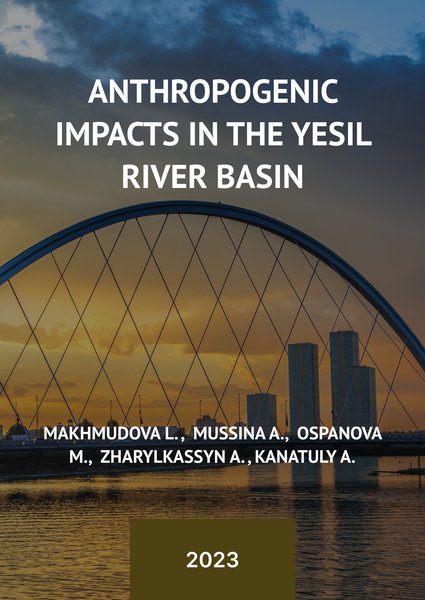




Year: 2023
Collections: Research Paper
Topics: Water
Authors: Makhmudova L., Mussina A., Ospanova M., Zharylkassyn A., Kanatuly A.
Countries: Kazakhstan
Source: Central Asian Journal of Water Research
The research aimed to assess the impact of human economic activities on the Yesil River Basin based on the observational data contained in Kazhydromet’s (Republic State Enterprise, RSE) hydrometeorological periodicals of 1933-2019. The additional analysis of numerous sources – statistics digests, online data of the Bureau of National Statistics under the Agency for Strategic Planning and Reforms of the Republic of Kazakhstan (RK), monographs and scientific papers also allowed to reliably evaluate the overall water consumption in the country.
Downloads:
The research aimed to assess the impact of human economic activities on the Yesil River Basin based on the observational data contained in Kazhydromet’s (Republic State Enterprise, RSE) hydrometeorological periodicals of 1933-2019. The additional analysis of numerous sources – statistics digests, online data of the Bureau of National Statistics under the Agency for Strategic Planning and Reforms of the Republic of Kazakhstan (RK), monographs and scientific papers also allowed to reliably evaluate the overall water consumption in the country.
The analysis of the available materials permitted identifying the indicators of irretrievable water consumption (IWC) by sectors of the national economy, including utilities, industry, and agriculture (irrigation). As the result, in terms of water use the IWC in the target watershed turned out to range between 3-29% of the total irretrievable water consumption (TIWC), with the corresponding highest value registered in 2007. It was also established that large reservoirs – Astaninskoye (Vyacheslavskoye) and Sergeyevskoye – have been exerting a regulating pressure on the long-term flow of the rivers comprising the basin.
The review of the data obtained likewise indicates that, compared to the conditionally natural phase, their runoff reduction during the disturbed phase is caused not only by reservoir related but also agrotechnical and climate change impacts. The study findings can serve water management purposes, aid the design of hydraulic facilities, as well as expand regional theoretical and applied hydrological research.
По всем вопросам сотрудничества обращайтесь по эл.адресу или телефону: